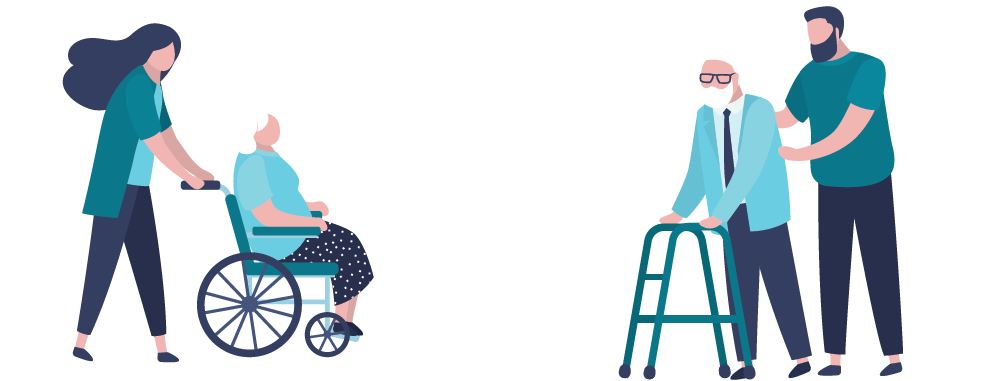National Social Work Month
Some patients can head home after an office visit or hospitalization, pick up their prescriptions, and manage follow-up appointments and care. Others may need a lot more help. When they do, medical social workers can provide valuable insight and access to resources. Whether patients need home health services or end-of-life care, social workers are uniquely equipped to find and arrange the support they need.
Columbia University pioneered the first social work class in 1898. Since then, social workers have advocated for those in need. Trailblazing social workers have won the Nobel Peace Prize, sat on presidential cabinets, and served in Congress.
Throughout history, social workers have fought for civil rights and promoted the equal treatment of vulnerable populations. In our practices, hospitals, and patient homes, social workers make it their mission to connect our patients with the services they need.

Social Workers in Home Health
When a patient needs home health, the number of “cooks in the kitchen” can overwhelm any busy clinician. An experienced social worker can take the reigns and coordinate between all parties.
They understand the intricacies between our patients’ health insurance, home health providers, and individual needs and can take this task from our plate. Social workers manage pre-authorizations, choose an appropriate home health agency, and work closely with patients and their families to discuss their options.
Social work professionals also assess our patients’ safety for discharge. They ensure their home is accessible and they have the support system to follow their care plan when a home health professional isn’t there.
Some social workers help our patients get set up with home health from the hospital or office. However, others work for home healthcare companies. In this setting, they can manage our patients’ needs at home and ensure they receive the most appropriate level of care. Social workers may be our patients’ first call with questions, and they can offer advice on resources and the coordination of their health needs.
Social Workers in Hospice
End-of-life care can take many forms. Some of our patients require palliative care with pain control and a once-weekly nursing visit. Others may need more frequent visits and other types of care, such as help with activities of daily living. While we may want our patients to get all the bells and whistles, a social worker’s input can help the healthcare team and patients figure out what they would like, what they need, what insurance will cover, and any out-of-pocket expenses.
Once we establish a hospice, a social worker employed by that service has much to offer patients. They can serve as counselors, listening to concerns and troubles. Social workers can help patients and their families cope with many challenges: emotional, social, and practical.
Our patients’ communities may offer resources for their citizens nearing the end of life, and a social worker can alert them to these opportunities. As our patients’ families cope with their loved one’s situation, social workers offer support for grief and bereavement.
Social workers help a myriad of patients from all walks of life. As such, they hold a unique perspective that helps to fill in any cracks left by other medical disciplines. Used in conjunction with other members of the healthcare team, social workers can add vital expertise and vastly improve our patients’ outcomes.



